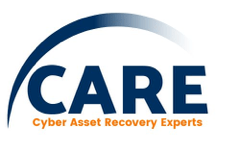Law Enforcement
FBI IC3 reported 69,468 Complaints with losses exceeding $5.6 billion in 2023 with Cryptocurrency Investment scams representing nearly 71% of all cryptocurrency-related fraud losses.

Law Enforcement Needs Help
You have contacted local law enforcement or the FBI and been advised to report your crime to the FBI’s Internet Crime Complaint Center at https://ic3.gov. You did as you were told but weeks have gone by and nobody has called you back. What is going on?
Similarly, let’s say you report your crime to local law enforcement and they provide you a case number, does that mean your case is going to be investigated. Unfortunately, it doesn’t. After a police officer or deputy takes your report and gives you a case number, often it takes a week to a month to be routed to their Detective Bureau where a decision is made as to what will be done with it. Often times after waiting a month, they will tell you to file your complaint with IC3.
The clock is ticking as you are waiting for help and meanwhile, your stolen funds are moving through a money laundering network. At some point, your funds will be gone even with law enforcement’s help. In this world, speed is everything.
Law Enforcement Liaison FAQs
I reported my case to the police, how long does it take to be assigned an investigator?
After filing a report with local law enforcement, it can take up to a month for your case to be assigned to an investigator. During this waiting period, consider what is happening to your stolen funds—whether they are being moved or laundered—while you wait for a response, and even then, there’s no guarantee your case will be prioritized or taken up at all.
Why is everyone telling me to file an ic3.gov complaint if the FBI isn't going to do anything for me?
Local law enforcement may not realize that the FBI is unlikely to investigate your case after you report it to ic3.gov. They genuinely believe they are directing you to the appropriate agency to handle your matter. Additionally, many local law enforcement officers assume they can’t help because the criminals are based overseas, and their primary focus is on arresting perpetrators.
What is the FBI's Internet Crime Complaint Center and how is a case opened?
According to ic3.gov, “the mission of the Internet Crime Complaint Center is to provide the public with a reliable and convenient mechanism to report suspected internet-facilitated criminal activity to the FBI and to build effective partnerships with law enforcement and industry stakeholders. The information submitted is analyzed and shared for investigative purposes and public awareness.” When complaints are submitted to ic3.gov, a decision is made whether to elevate the case to a “Guardian”—the lowest level of FBI investigation, which has very limited resources and investigative options. In most cases, only a small percentage of complaints are escalated to Guardian status. Once a Guardian is created, it is up to an FBI White Collar Squad Supervisor to decide whether to assign the case to a Special Agent for further investigation. If a Special Agent takes on the case, they will contact the U.S. Attorney’s Office to determine if they will initiate a Grand Jury investigation to obtain subpoenas. However, federal prosecutors typically have a minimum loss threshold for opening a Grand Jury investigation, which in places like Los Angeles is often set at $2 million or more.
The challenge here is that there simply aren’t enough federal agents and prosecutors to investigate the overwhelming number of cybercrime cases. As a result, tough decisions must be made, prioritizing cases based on available resources. While TV shows often portray FBI agents working around the clock, the reality is that these professionals have families and personal lives just like anyone else, making it unrealistic to expect them to be available 24/7. Despite their dedication, the sheer volume of cases means they can’t always provide the level of attention that victims may hope for.
What I should do now?
You’ve likely reported your case to ic3.gov and local law enforcement, but you’re not getting the help you need. You can wait to see if things improve, but remember—your stolen funds are currently being laundered. The decisions you make next are crucial for your future, so it’s important to consider your options carefully.
CARE recommends securing competent legal representation and, with our support, taking steps to hold cybercriminals and cryptocurrency exchanges accountable for their role in the fraud.
What does law enforcement feel about Private Sector Tracing Companies?
The answer to this question is mixed. Historically private sector companies have provided incorrect tracing reports which has ruined their credibility with law enforcement. Further, several scam tracing companies have emerged to further victimize already hurting victims. Needless to say, this is infuriating to law enforcement. Others in law enforcement feel victims should not have to pay for Crypto Tracing companies. CARE agrees victims should receive help from law enforcement without having to pay for it.
The reality is most victims are not getting the help they need from the government so companies like CARE are necessary to combat these type of crimes as long as they do their work correctly. Law enforcement investigators receive paychecks and the resources, such as crypto forensic software, to investigate their cases. Private sector companies must pay their employees and obtain expensive software licenses to conduct this type of work which is why they have to charge for their services. CARE seeks to keep our prices as low as possible for victims who have been severely damaged by these type of crimes.
Does CARE guarantee the return of my funds?
Unfortunately no. There is no way for CARE to know what happened to your money without doing the work. So should you just accept your money is gone and move on? Once again, that is a personal decision. CARE exists to do everything possible to increase the chances of you getting some of your stolen funds returned to you. If any private company tells you something different, they are lying and probably a scam.
Real Pig Butchering Victims
Cyber Asset Recovery Experts knows these two victims in these videos. What happened to them is horrible but unfortunately, typical. CARE was started to help victims of these type of crimes overcome the significant hurdles in front of them.









